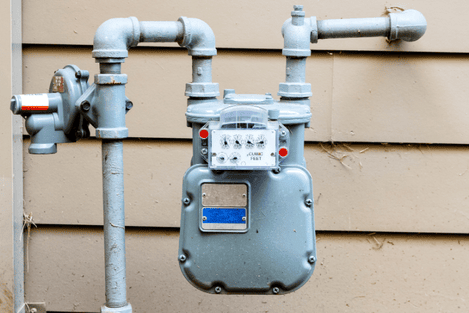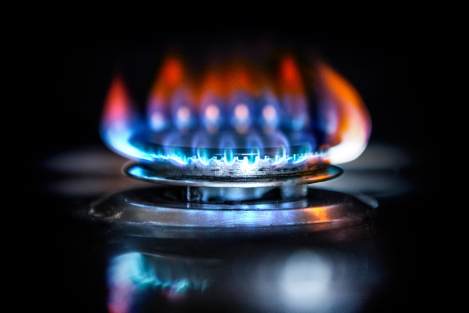
Written by Kayla Jane Barrie Updated on Mar 10, 2025 4 mins read

Your policy is designed to offer protection against various risks, but not all homeowners are aware of the specific coverage details for hazards like gas leaks.
Natural gas is used for water heaters, clothes dryers, fireplaces, barbecuing, yard lighting, and heating swimming pools. It accounts for 51.5% of energy use in Canadian homes.
However, gas leaks can lead to dangerous situations, from property damage to explosions. This blog post will explore how home insurance policies handle gas leaks, what's covered, and what you should do if you suspect a gas leak on your property.
Natural gas is a valuable resource but can be dangerous if improperly handled. Gas leaks are a serious issue, and understanding your home insurance coverage is essential for peace of mind.
In Ontario, whether home insurance covers gas leaks depends on the circumstances surrounding the leak and the specific terms of your policy. Generally, standard home insurance policies in Ontario will cover damage caused by gas leaks, such as if:
Here is a scenario illustrating a typical case where home insurance covers the damage from a gas leak that was sudden, accidental, and beyond the homeowner's control:
John and Sarah own a home in Ontario and have a standard home insurance policy. One evening, they smelled gas in their kitchen and immediately evacuated the house. They contacted their gas provider, who discovered a gas pipe under the kitchen had cracked due to recent construction work nearby, causing a leak.
While waiting for repairs, the gas leak worsened, and a small explosion occurred, damaging the kitchen and some of their appliances, including the stove and fridge. The explosion also caused minor smoke damage to their living room furniture and belongings.

Since the gas leak and explosion were sudden and accidental, their insurance covers the structural damage to the kitchen, including repairing walls, cabinets, and flooring. The policy also covers the replacement of damaged personal belongings, like the fridge and stove.
Because the damage made their home temporarily uninhabitable, their coverage paid for a hotel stay and meals while repairs were completed.
Fortunately, no one was injured. If the explosion had harmed a neighbour, John and Sarah’s home insurance liability coverage would have helped with any medical expenses or lawsuits resulting from the incident.
If you find or suspect a gas leak at home, acting quickly to ensure your safety and prevent a potential disaster is critical. Here are the steps you should take immediately:
A gas leak smells like rotten eggs. This distinct odour is added to natural gas, which is naturally odourless, to make leaks easily detectable. If you smell this odour, do not ignore it. It's a clear sign of a gas leak, and you should exit your home and call for assistance immediately. Open windows for ventilation, and call your gas company or emergency services.
Here are four common causes of gas leaks at home:
No, a carbon monoxide detector cannot detect a gas leak. Carbon monoxide detectors are specifically designed to identify the presence of a colourless and odourless gas. In contrast, gas leaks are typically identified by adding an odorant that produces a smell similar to rotten eggs.
The cost to repair a gas leak varies greatly depending on the location, severity, and complexity. It can range from a few hundred dollars for a simple repair to thousands of dollars for extensive pipe replacement.
It's important to understand your home insurance coverage in Ontario and take preventative measures to protect yourself and your family from the dangers of gas leaks. If you have any concerns about gas leaks, don't hesitate to contact your insurance company or a qualified natural gas professional for guidance.
| Categories | Home |
|---|---|
| Tags | Homeowners Claims |
Read our insurance blog to get helpful tips, information and news.
Fatal collisions in Canada rose 9.14% from 2019 to 2023. Discover the latest road safety statistics, provincial rankings, and how these trends affect your auto insurance rates.
Find out if a seatbelt ticket will raise your car insurance rates and how insurers view seatbelt violations.
Ontario’s Project CHICKADEE dismantled a $25 million auto theft ring. Discover how this massive bust targets export enablers and what it means for rising Canadian insurance premiums.
Think refusing a breath test helps your case? In Ontario, it results in a minimum fine of $2,000 and a criminal record. Compare the penalties and protect your future.